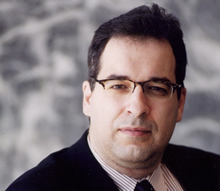I have spent most of my working life telling true stories. I have been paid to do this. The money is, of course, one dividend of a storyteller’s life, but the profound rewards sometimes come in unexpected places.
Last June, I met a trio of Mennonites in a small town in central Kansas. I was there to research a story about a relatively new phenomenon: Old Colony Mennonite drug traffickers.
It was a fascinating story, to be sure. But one of the Mennonites who was poised to guide me into this enigmatic world led me instead to a woman at the centre of another memorable story.
Kansas was where the great American writer Truman Capote had travelled to almost half a century ago to record the story of the Clutter family. Capote’s masterpiece, In Cold Blood, recounted the tale of the improbable intersection of the lives of an austere farming family and two killers.
The Clutter family numbered six. Four of them were slaughtered after they were roused from sleep on their farmstead in Holcomb, Kansas, on November 15, 1959, during a botched burglary. Two elder Clutter sisters survived because they were away from the farm that night.
I was thinking about Capote, the Clutters and In Cold Blood while I drove along the rolling, golden Kansas countryside to my Mennonite meeting not far from Holcomb. When I arrived, to break the ice, I mentioned that Capote’s book was a bible of sorts for non-fiction writers. One of the Mennonites was a tiny, white-haired woman who hailed from Winnipeg. After the meeting, she sidled up to me.
“You mentioned the Clutter family and In Cold Blood,” she said. “Would it interest you to know that I am the best friend of the surviving Clutter sisters?”
I was stunned. “Where do they live?”
“Right here,” she said.
Writers are curious mercenaries. So I asked her if it was possible to arrange a meeting with the sisters. To my surprise, one of the sisters agreed to see me.
Days later, I was shaking hands with a slight woman who had once shared stories with the immortal Capote about her murdered parents, brother and sister. Now, Eveanna Clutter was chatting with an obscure writer from Canada.
I wasn’t interested in revisiting that dreadful night or Capote. I was anxious to learn how she and her sister had rebuilt their lives. But Eveanna was guarded. Her answers to my questions were clipped and cryptic. She betrayed little about herself and her family. However, her quiet demeanour reflected her resilience in the face of unimaginable tragedy.
Toward the end of our tête-à-tête, I asked Eveanna if she would consider telling her story of loss and life in the popular American magazine I was on assignment for.
She said no.
I was not surprised. But her rejection still stung.
“May I ask why?”
“The story has been told,” she said. “And the people that need to know, know.”
With that, she bade me good luck and goodbye.
Looking back, I think she accepted my invitation to meet as a courtesy to her friend. Whatever her motivation, I won’t forget our brief rendezvous.
We live in an age where grief becomes a vehicle for profit and fleeting celebrity. The most intimate aspects of people’s lives are paraded on television and in newspapers and magazines in a disagreeable, circus-like fashion. Eveanna Clutter has resisted that ephemeral lure. She told her family’s story once to an extraordinary writer decades ago. Since then, she has politely rebuffed scores of reporters despite her family’s place in American literature and folklore. I was the latest.
I don’t begrudge her this. Her decision may have cost me a story, but she reminded me of the value and dignity of silence.






